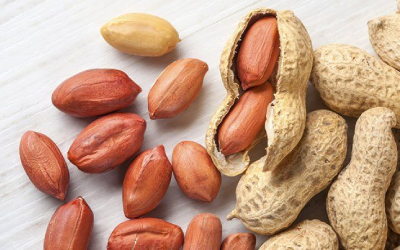Arachis hypogaea, which is the scientific name for peanuts that came in South America. They are categorized as some type of legume, and they pass by an assortment of names, for example, groundnuts, earthnuts, and also goobers. Regardless of their name, peanuts are inconsequential to tree nuts. Being a legume, they’re identified with beans, soy, and lentils. Rather, they are frequently taken roasted or in the form of peanut butter. Other peanut items incorporate peanut oil, protein, and flour. These products are utilized in an assortment of nourishments, for example, sweets, cakes, candy store, bites, and sauces.
Peanuts carry a high amount of protein, fat, and other several essential nutrients. Research shows that peanuts might even be valuable for weight reduction and are connected to a decreased danger of heart illness.
All about peanuts Good or Bad for Health?
1. Nutrition package
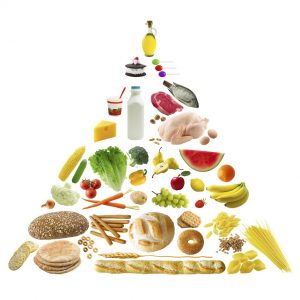
in 100 grams (3.5 ounces) of raw peanuts consists of:
- Carbs- 16.1 grams
- Fiber- 8.5 grams
- Calories- 567
- Water- 7%
- Sugar- 4.7 grams
- Fat- 49.2 grams
-
-
-
- Monounsaturated- 24.43 grams
- Omega 6- 15.56 grams
- Omega 3- 0 grams
- Trans- 0 grams
- Polyunsaturated- 15.56 grams
- Saturated- 6.28 grams
-
-
-
2. Peanuts fat
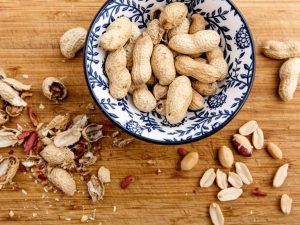
Peanuts are rich in fat. Truth be told, they are named oilseeds. An enormous extent of the world’s peanut harvest is utilized for making peanut oil (Arachis oil). The fat substance ranges from 44%–56% and primarily comprises of mono-and polyunsaturated fat, the greater part of which is comprised of oleic and linoleic acids.
3. Peanut Proteins
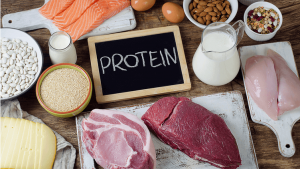
Peanuts are an excellent ingredient of protein. The protein content reaches from 22%–30% of its absolute calories, making peanuts an incredible wellspring of plant-based protein. The most inexhaustible proteins in peanuts, arachin, and conarachin, can be seriously allergenic to certain individuals, causing dangerous responses.
4. Peanut Carbs
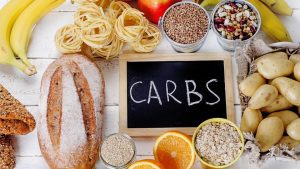
Carbs are low in peanuts. Indeed, the carb content is just around 13%–16% of the complete weight. Being low in carbs and rich in protein, fiber, and fat, peanuts have a quite less glycemic index (GI), which is a proportion of how rapidly carbs enter your circulation system after any meal. This makes them appropriate for individuals with diabetes.
5. Nutrients and Minerals
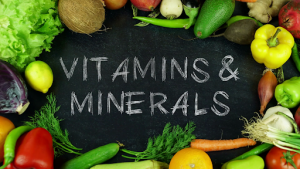
Peanuts are a brilliant source of different nutrients and minerals, including:
- Biotin– Peanuts are one of the most extravagant dietary wellsprings of biotin, which is significant during pregnancy.
- Copper– A dietary follow mineral, copper is regularly low in the Western eating routine. Lack may affect heart wellbeing.
- Niacin– Otherwise called Vitamin B3, niacin has different significant capacities in your body. It has been connected to a decreased danger of coronary illness.
- Folate– Otherwise called nutrient B9 or folic acid, folate has numerous important factors and is particularly significant during pregnancy.
- Manganese– A follow component, manganese is found in drinking water and most nourishments.
- Vitamin E– An amazing antioxidant, this nutrient is frequently found in high sums in fatty nourishments.
- Thiamine– Out of several B vitamins, thiamine is otherwise called Vitamin B1. It enables your body’s cells to change over carbs into and is fundamental for the working of your heart, muscles, as well as the nervous system.
- Phosphorus– Peanuts are decent sources of phosphorus, a mineral that assumes a fundamental job in the development and support of body tissues.
- Magnesium– A fundamental dietary mineral with different significant capacities, adequate magnesium admission is accepted to ensure against heart illness.
6. Other Compounds
Peanuts contain different bioactive plant elements and cell antioxidants. Truth be told, they have an abundance of antioxidants the same number of fruits. The majority of the antioxidants are situated in peanut skin, which is consumed just when peanuts are in raw form.
All things considered, peanut kernels despite everything include:
- p-Coumaric acid– This polyphenol is one of the principal cancer antioxidants present in peanuts.
- Resveratrol– An amazing antioxidant that may diminish your danger of cancer and coronary illness, resveratrol is most strikingly found in red wine.
- Isoflavones- A group of antioxidant polyphenols, isoflavones are related to an assortment of health impacts.
- Phytic acid– Present in plant seeds, including nuts, phytic acid may weaken the retention of iron and zinc from peanuts and different nourishments eaten simultaneously.
- Phytosterols– Peanut oil contains significant measures of phytosterols, which disable the intake of cholesterol from your digestive tract.
7. Weight Reduction

Peanuts have been broadly concentrated with respect to maintaining weight. In spite of being high in fat and calories, peanuts don’t seem to add to weight increase. Truth be told, observational examinations have demonstrated that peanut utilization may help keep up a healthy weight and decrease your danger of obesity. These examinations are entirely observational, which implies that they can’t give evidence of causation.
In any case, one little, half-year study in healthy ladies recommended that when different sources of fat in a low-fat eating regimen were exchanged with peanuts, they lost 3 kgs (6.6 pounds) regardless of being advised to keep up their initial weight. Another examination found that when 89 grams (3 ounces) of peanuts were added to the day by day diet of healthy grown-ups for about two months, they didn’t put on as much weight as thought so.
Different variables make peanuts a weight reduction food:
- They diminish food consumption by elevating fullness to a more noteworthy degree than other normal tidbits, for example, rice cakes.
- As a result of how filling peanuts are, individuals, seem to make up for expanded peanut utilization by eating less of other different food.
- At the point when entire peanuts are not chewed properly, a bit of them may go through your digestive framework without being able to absorb.
- The high substance of protein and monounsaturated fat contained in peanuts may build calorie burning.
- Peanuts are a factor of insoluble dietary fiber, which is connected to a diminished danger of weight gain.
8. Healthy Heart

Notwithstanding being a weight reduction well-disposed food, peanuts are related to a few other medical advantages.
Heart illness is one of the main sources of death around the world. Observational investigations demonstrate that eating peanuts, just as different kinds of nuts, may ensure against heart illness. These advantages are likely the after-effect of different variables.
Quite, peanuts contain various heart-sound nutrients. These incorporate magnesium, copper, oleic acid, niacin, and numerous antioxidants, for example, resveratrol.
9. Gallstone Prevention
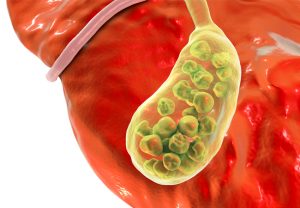
Gallstones influence roughly 10%–25% of grown-ups in the United States. Two observational investigations propose that regular peanut utilization may cut the danger of gallstones ie both the genders. As most gallstones are to a great extent made out of cholesterol, the cholesterol-bringing down impact of peanuts might be the reason. Further investigations are expected to affirm these discoveries.
Adverse effects of peanuts
Besides allergies, eating peanuts has not been connected to numerous unfavorable impacts. All things considered, there are some wellbeing worries to consider.
Aflatoxin poisoning
Peanuts can once in a while be tainted with a species of mold (Aspergillus flavus) that makes aflatoxin. The fundamental side effects of aflatoxin poisoning incorporate loss of craving and yellow staining of the eyes (jaundice), which are typical indications of liver issues. Genuine aflatoxin poisoning can prompt liver failure and further liver cancer. The danger of aflatoxin contamination relies upon the way peanuts are stored. The danger increments with warm and humid weather conditions, particularly in the tropics. Aflatoxin contamination can be adequately forestalled by appropriately drying peanuts subsequent to harvesting and keeping humidity and temperature on low at the time of storage.
Antinutrients
Peanuts contain various antinutrients, which are substances that disable your retention of nutrients and diminish nutritional value. Of the antinutrients found in peanuts, phytic acid is especially vital. Phytic acid (phytate) is found in every single eatable seeds, nuts, grains, and vegetables. In peanuts, it contains an amount of 0.2%–4.5%. Phytic acid diminishes the presence of iron and zinc in peanuts, bringing down their healthy benefit marginally. It is generally not a issue in both weight management diets even in the people that usually consume meat. In either case, in developed nations where the main food supplies are grains or vegetables, this may be a concern.
Peanut sensitivity (allergy)
Peanuts are one of the most widely recognized food allergens. Sensitivity to peanuts is evaluated to influence roughly 1% of Americans. Peanut allergies are possibly life-endangering and peanuts are at times thought about the most serious allergen. Individuals with this hypersensitivity ought to evade all peanuts and nut items.
Conclusion
Peanuts are as well regarded as nutritious ones. They ‘re an excellent plant-based protein source and rich in various nutrients, minerals and plant components. These can be useful as a piece of a diet for weight loss, which can reduce the chance of both heart failure which gallstones. Be this as it might, this vegetable, being rich in fat, is considered to be high-calorie food and should not be consumed in extra quantity.

